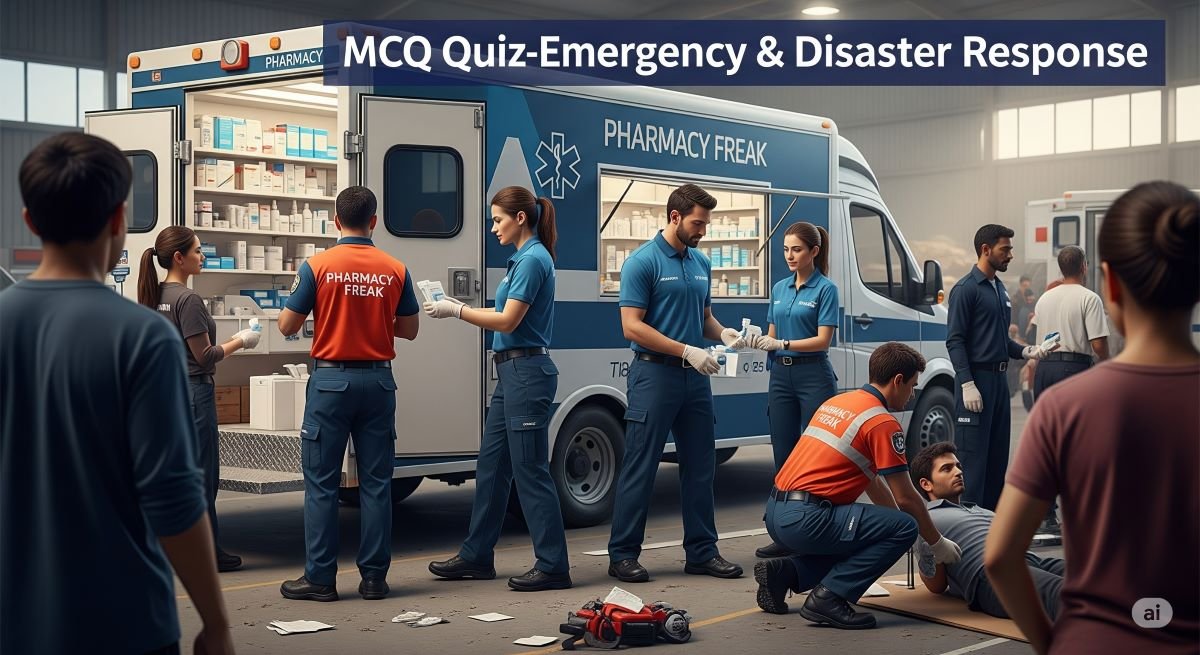

First Response, Emergency, and Disaster Planning MCQs
In today’s world, pharmacists play a key role in emergencies—whether it’s responding to a sudden health crisis, supporting disaster relief, or making split-second decisions in urgent situations. This page covers the must-know topics and practical tips for MCQs focused on first response, emergency management, and disaster planning in pharmacy.
What’s Covered in First Response, Emergency, and Disaster Planning?
This area of pharmacy education includes preparation for natural disasters, mass casualty events, pandemics, chemical or biological exposures, and more. You’ll learn how to respond quickly, coordinate with healthcare teams, and ensure continued medication access and patient care in high-pressure situations.
What Will These MCQs Test?
Core Focus Areas
Emergency Preparedness:
Expect questions on creating and executing emergency plans for pharmacies, including inventory management, back-up power, and supply chain disruptions.Triage and First Response:
MCQs may cover basic triage principles, identifying high-risk patients, and understanding your scope of practice in acute events.Communication and Coordination:
You’ll see scenarios on working with first responders, public health officials, and other members of the healthcare team during an emergency.Medication Management in Disasters:
Look for questions about dispensing during shortages, adjusting therapy when supplies are limited, and ensuring medication safety in non-ideal conditions.Regulatory and Legal Considerations:
Be prepared for MCQs on emergency use authorizations, record-keeping, controlled substance rules, and documentation during disaster response.
Why These MCQs Matter
Here’s the reality: in a crisis, pharmacists are often the most accessible healthcare providers. The choices you make can save lives, prevent harm, and help communities recover faster. These MCQs aren’t just for the test—they train you for real-life emergencies where quick, confident action counts.
Tips for Success with Emergency and Disaster MCQs
1. Know the Plan:
Familiarize yourself with emergency protocols for pharmacies and healthcare systems. The best answer often follows established plans and procedures.
2. Think Safety First:
Always prioritize patient and staff safety—especially when resources are stretched or situations are unclear.
3. Communicate Clearly:
Pick responses that encourage open, accurate communication with both the public and healthcare teams.
4. Adapt to the Situation:
Flexibility matters. MCQs may reward answers that adjust to rapidly changing needs or unexpected challenges.
5. Document Everything:
Good records protect patients and the pharmacy. In emergencies, thorough documentation is often a requirement—not just a best practice.
Building Real-World Confidence
Mastering first response, emergency, and disaster planning MCQs gives you the confidence and skills to step up when your community needs you most. Use every question to sharpen your ability to plan, act, and lead during critical moments in pharmacy practice.

